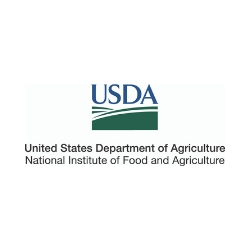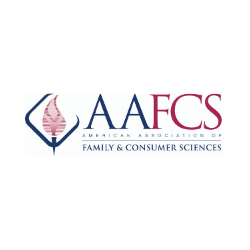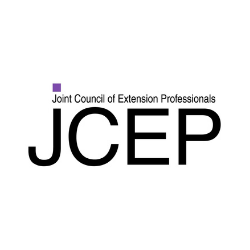2020 President's CharitiesInstructions for donating can be found on each charities’ listed website. Please take the time to enjoy learning about each charity below, three in total, and by spending time on their websites!! Click to read more:
When Charles and Donna Cooley retired from Southern Utah University in 1995, they began producing and giving away small animal cut-outs. Children found them so appealing that they began regular deliveries 250 miles north to Primary Children’s Medical Center in Salt Lake City and soon, says Charles, “We got more hugs there than we did at a family reunion.” The toys were received with such enthusiasm and gratitude that the Cooley’s made more and donated them locally to the Canyon Creek Women’s Crisis Center, Cedar City Care and Share, the Presbyterian Church, and within the state of Utah to Shriner’s Hospital, Ronald McDonald House, and now worldwide. A free pickup truck load of hardwood strips inspired Charles to design and make small cars and trucks, painted by Donna, which were warmly welcomed in Salt Lake City as well at Shriner’s Hospital and the Humanitarian Center, a charitable arm of the church of Jesus Christ of Latter-Day Saints (LDS) where the Cooley’s learned there were 500 million children in the world without toys. “We couldn’t make a drop in the bucket for a need like that,” said Charles. But he was told “One toy may be only a drop in the bucket of the world’s needs, but it’s a big drop for the child who gets it.” That changed the Cooley’s hobby into a full-time labor of love and inspired a motto: “We may not be able to make a toy for every child in the world who needs one, but we’re going to try.” While cutting out more cars and trucks on a chilly morning in November 1996, Charles was inspired by the smiling faces of children who got their toys and their operation became The Happy Factory. Soon volunteer helpers signed on, production increased, and Happy Factory toys began winning smiles from thousands of needy children all over the world and in the US, in hospitals, Family shelters, churches, schools, Native American Organizations, Foundations, Medical Clinics, Crisis Centers, Head Start branches, orphanages, and from the often forgotten young victims of natural disasters. Many individuals have even hand-carried toys to places all around the world. When toy steam shovels on which a child can sit and manipulate the bucket were added to production, seriously disabled children were stimulated to do all sorts of things previously thought to be beyond their capability. So far, over 2,610 have been delivered to children all over the world, and in many cases and places “steam shovel therapy” is the only kind available. The impact of steam shovels and simple little toys on children who never had one has frequently been startling, as if a light had suddenly turned on in darkened little heads. To their delight, the Cooley’s discovered their toys were often tools that helped rejuvenate minds. To date, over 1,503,129 Happy Factory toys have been given to more than 600 different organizations, groups and people in 125 countries. No Happy Factory worker makes a dime and the gifting is still gathering momentum. Thank you for considering The Happy Factory as a beneficiary. You can make a child’s life brighter in many ways. Since their humble beginnings, The Happy Factory has welcomed volunteers of every age–including juvenile offenders in three state correctional facilities. There are no paid salaries. The Happy Factory is a 501(c)3 non-profit organization. All the materials they use are donated and all of the toys are made by volunteers. Every toy is donated to a child in need. The toys are made of scraps of hardwood donated by a local cabinet maker. Unfortunately, there are a few expenses for wheels and axles, saw blades, building maintenance costs and other miscellaneous items. The Happy Factory workers are toy makers, not fundraisers. It costs approximately fifty cents per toy for wheels and axles, so even small amounts make a big difference. “There are many things that I cannot do. There are many things that I do not know. But, there is one thing that I can do. I can serve another. And I’m so grateful that I can serve some of His little ones. I don’t need any praise, notoriety, or pay because the satisfaction, blessings and feelings that I receive are so great that I need nothing else”. - Charles T. Cooley, Founder of The Happy Factory For more information, pictures, and details regarding this charity, please visit: http://happyfactory.org/about-us/the-story-begins/ (DONATE button is located in the footer section of the website) In both the good and hard times, our Utah Farmers have always been passionate about feeding people. Utah farmers and families have been particularly impacted by this pandemic. Many important supply chain elements have closed down, leaving farmers unable to sell their Utah-grown products. When the food system is interrupted, as it is now with COVID-19, our food options become limited. During these unusual circumstances, it is crucial to support those who work so hard to provide us with the products we consume and require for survival. The idea of farmers having nowhere to send or process their commodities, while so many people are not sure if they will have enough to eat, is tragic. Farmers Feeding Utah is designed to avert this tragedy by supporting the livelihood of our local farmers and also making sure those in need have access to healthy food. Launched by the Utah Farm Bureau Federation in early May, Farmers Feeding Utah has the two-fold goal of helping sustain farmers and ranchers impacted by COVID-19 and providing food and donations to Utah families in need. Farmers Feeding Utah is a combined effort between the Utah Farm Bureau, Utah State University Extension, and various community partners and volunteers to help address hardships related to the current food supply chain challenges and family nutritional insecurity throughout Utah. We do this while simultaneously helping sustain Utah’s family farmers and ranchers that have been especially impacted by the pandemic. Funds are raised, agricultural commodities are purchased and (if needed) processed, and then food is distributed to those in need with the help of community-based organizations. This is Utah helping Utah. The program is funded through grassroots and corporate donations. All donations are 100% used for food, delivery, and processing. There is no overhead for Farmers Feeding Utah. Partners involved have identified the impact and desire to help farmers and people in need and work together on gathering donations, buying products, getting products processed and then delivered to the areas in need. Now, more than ever, more drop-off sites have been identified. Funds raised will be used to purchase products from Utah farmers, and the products will then be donated to Utahans in need. To contribute financially visit www.FarmersFeedingUtah.org, where 100 percent of donations will go to purchasing, processing and distributing locally sourced food to families in need. Your donations help families in need: 1 Utah-sourced meal: $5; OR, Meal for a family: $25; OR Meals for 2 families: $50; OR, Meals for 4 families: $100; OR, a Custom Amount. Latter-day Saint Charities is the humanitarian arm of The Church of Jesus Christ of Latter-day Saints, and sponsors efforts in relieving suffering, and building self-reliance globally, and providing opportunities for service. More than one million workdays of labor are contributed each year by volunteers in support of welfare initiatives. Their vision states, “We strive to embrace the two great commandments: to love God and love our neighbor. Through your help, the work of Latter-day Saint Charities is moving forward. This work is centered around our new mission—a mission that has been refined into a new statement: we help others feel the love of Jesus Christ by relieving suffering, instilling hope, and building stability to strengthen families and promote individual dignity.” In 2019 alone Latter Day Saint Charities addressed issues across the world. Some of this help included providing relief for Cyclones Idai and Kenneth, which caused flooding and destroyed crops in Mozambique and Zimbabwe. Latter-day Saint Charities sprang to action after disaster struck and worked alongside global and local partners to provide food and shelter to victims of the storms through its Johannesburg regional office. During this same devastation, Latter-day Saint Charities expanded help to global partners to meet people’s basic needs and rebuild their livelihoods. Even months after the cyclones, efforts continue to help repair and refurnish schools ahead of the rainy season so that students have a dry place to study and learn. Whether responding to natural disasters, infectious diseases, or food shortages, the Latter-day Saint Charities emergency response team has worked to provide immediate relief to help individuals and families survive, recover, and thrive. This is only the tip of the iceberg. They have been providing relief in war torn countries, natural disaster areas of the world, and certainly within the United States, with key project areas in food security, clean water, emergency response, immunization, maternal and newborn care, refugee response, vision care, and even wheelchair needs. Their involvement in the COVID 19 crisis response has already reached a global reach, and millions of face masks alone have been distributed. For more information, pictures, and specific details visit: https://www.latterdaysaintcharities.org/ |




